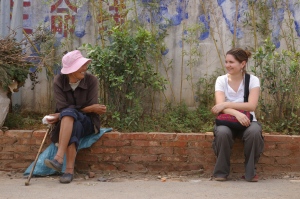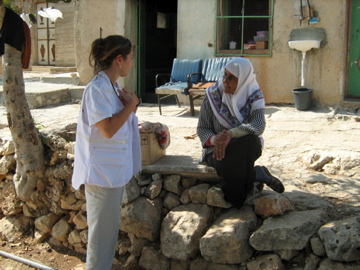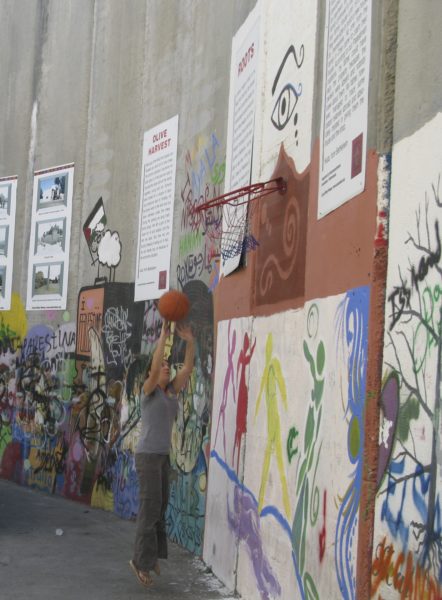My story
“We are not striving for perfection, but for humanity. And humanity means that none of us here is Superman or Wonderwoman. We need a break, we need a friend, we need love, we need a home, we need some warmth and care. We don’t want to be bureaucrats, nor be subject to patronising rules. We strive for meaning otherwise we wouldn’t be doing what we are doing.”
First was MSF, My own personal Search for Meaning
I joined Médecins Sans Frontières/Doctors Without Borders attracted by the possibility to heal and speak out against the inhuman conditions in which many still live today in this crazy planet. How privileged to be able to work as a psychologist and bear witness to the effects of war through vivid personal stories. I wanted to do something meaningful for myself and for others, while exploring the world. I also wanted to speak up and write about what this crazy world was bringing to my eyes and ears. Through humanitarian work I could do just that. It was a kind of “inner-outer journey”.
My first mission was in Nablus, Palestine in 2008 at the time of Operation Cast Lead. In 2009 I was in China following the earthquake in Sichuan. I have been working as a psychologist with Palestinian families living in conflict, and with Chinese men and women struggling in the aftermath of the biggest earthquake that ever hit China.
War out there to numb the war within?
While I was attending to the needs of the local population, I could not help noticing that I myself had my own emotional needs, and so did my colleagues. We were a mess! Often ours needs were unmet, leaving us psychologically wounded and isolated. While our position seemed a lucky one in comparison to the one of those who had lost a friend, a parent or a child in a conflict or in an earthquake, I could not fail to notice that our own suffering did not disappear in the face of war or tsunamis, but rather was made more acute in such fragile contexts. Life in the field, with that constant living on the edge of conflicts, magnifies our traits and behaviours, the good and the bad.
Over the years through my work with humanitarians, through my doctoral research, and through my ongoing personal journey, I’ve come to see how the passionate and maladjusted in us often lift the sail towards aid work. It goes back to searching for meaning and striving for some personal truth I guess. I think aid helped me more I was able to help others. Aid can be part of a quest, an escape, a way to lead an interesting life.
Sometimes we seek war out there to avoid the conflicts that battle within us. As a patch solution this may help to numb the pain, but in the long run disregarding our own pain turns us either into emotional zombies or leads to depression, anxiety disorders or burnout.
Humanitarian burnout
Humanitarian work tests people’s resilience on a daily basis.
Far from home, and without the appropriate social support it is not unusual to feel isolated, stressed, frustrated, sometimes depressed. Past sufferings are often triggered by the difficulties of the mission, leaving humanitarian professionals with no one to turn to except maybe another willing colleague ready to listen, or the comfort of alcohol. I have seen depression, substance abuse, helpers’ fatigue and eventually burnout turn ‘a humanitarian dream’, into a humanitarian nightmare which ended on a plane with a single flight back home and a mission cut short.
How mindfulness helped me

China (Sichuan), 2009
A lot of shit happened to me when I was on my humanitarian missions: friends dying back home, toxic work environment, colleagues leaving without notice…and war. While I agree with Prof Mark Williams that “nothing cures everything”, mindfulness truly helped me at the time. Simply taking the time to sit for a few minutes before hitting the field provided me with a breathing space, a way to tune into my day from a place of less chaos. I think each one of us needs to find that space of sanity somewhere (within or out there, ideally both). It’s your call to find your own.
The real difficulties of humanitarian work
I soon learned that it is a myth that the difficulties of a mission are war, conflict and natural disasters. Aid workers are ready for those challenges, many crave the adrenaline and the kick that they get from going through a military checkpoint or being in a war-zone. I know I did.
For most humanitarians the difficulties of a mission are the team dynamics, the tough work environment, the loneliness, the shattered illusions about humanitarian organisations, the lack of a place one can call ‘home’. That’s what leads to burnout.
While aid workers need to practice self-care (and no, alcohol doesn’t count as self-care!), it is up to their organisations to foster a healthy work environment which is the real key to burnout prevention.
Change the world?
Changing the world is a much sexier idea than changing ourselves and our organisations. But I guess it’s true that “war and peace start in the heart of the individuals” as Buddhist teacher Pema Chödrön writes in Practicing Peace in Times of War (highly recommended little book, and her teachings on mp3 are even better).
Based on the wisdom of others rather than my own experience, I guess it is sensible to say that we cannot change the world out there, unless we start from ourselves and from our organisations.
Humanity as a pre-requisite for meaningful work
We are not striving for perfection, but for humanity. And humanity means that none of us here is Superman or Wonderwoman. We need a break, we need a friend, we need love, we need a home, we need some warmth and care. We don’t want to be bureaucrats, nor be subject to patronising rules. We strive for meaning otherwise we wouldn’t be doing what we are doing.
Personal and organisational mindfulness can help to develop emotional intelligence, awareness and ‘healthy empathy’. The opposite of the cynicism, and emotional numbness which are the doorway to burnout, and crippling realities in the humanitarian sector.
If we want to make the world a better place, looking within as well as after ourselves is the pre-requisite to effectively care for others. As my friend Jennifer Lentfer wrote: “Aid worker, know thyself“. Maybe that’s how changing the world starts from within.
All the best wherever you may be in the world!
Alessandra Pigni



